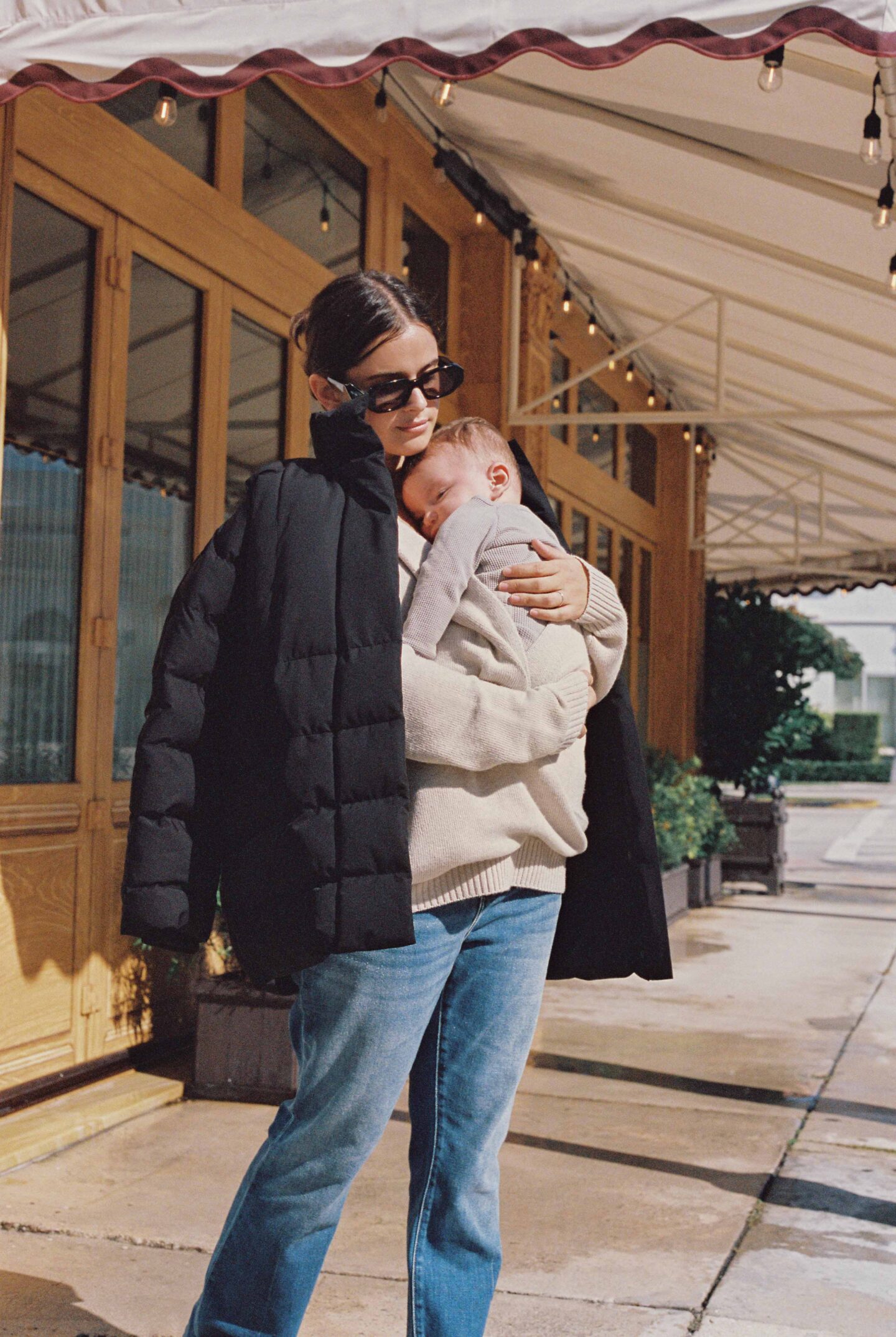Life is unpredictable, but with the Sollis Health Family Membership, you can face every health challenge with confidence and calm. From those sleepless nights when your little one spikes a fever to the unexpected tumbles that come with age, Sollis Health is your trusted partner in care. The Sollis Family Membership covers everything from routine check-ups to urgent emergencies, ensuring that every member of your family—from the tiniest tot to the wisest elder—gets the personalized, comprehensive care they need. As mamas, we know that peace of mind can sometimes be the best medicine there is. Here, we chatted with Dr. Narissa M Joyner, MD, Board Certified EM Physician, on some of the most commonly asked questions about babes in the Sollis offices.
When it comes to fevers, how high is too high? And what do I do?
When it comes to fever, it’s not just about the number on the thermometer. Dr. Joyner explains—it’s about how your child is feeling and behaving. Say it with us, D-I-S-P-O-S-I-T-I-O-N! A fever can be a sign of the body fighting off an infection, but certain symptoms indicate that the fever is more serious:
- Fever and vomiting: If your child has a fever and is also vomiting, this could be a sign of a more serious illness.
- Fever and laying around limp: A fever that leaves your child unusually limp or lethargic is concerning.
- Fever and not eating or drinking: If the fever is preventing your child from eating or drinking, it’s time to take action.
- Fever and labored or quick breathing: Difficulty breathing alongside a fever is a red flag.
The key is to treat the fever when it’s causing your child to act abnormally. If your babe isn’t eating or drinking or seems unusually uncomfortable, it’s time to give Sollis a call. However, if your child is happy and active, there’s no need to rush to medicate them just because of the fever. When you do need to treat a fever, use ibuprofen or acetaminophen based on the weight-based dosage instructions on the bottle. Always ensure you are giving the correct dose to provide relief and help your child feel better.
When should I be worried about vomit? I feel like my kid is throwing up all the time!
Vomit can be alarming (not to mention, ew), but knowing when to worry and how to handle it can make a big difference. As Dr. Joyner explains, you should be concerned if you see blood in the vomit or if it’s green, black, or has a coffee-ground appearance, as these are indications of something potentially serious. Repeated vomiting in a short period also raises concerns due to the risk of dehydration.
If your child experiences a large amount of vomit but doesn’t show concerning symptoms, preventing dehydration is key. After a vomiting episode, wait 20 minutes to an hour before giving small sips of fluid. Gradually offering Pedialyte or Gatorade can help rehydrate your child without overwhelming their stomach. Ginger, either alone or in a tea, can help soothe nausea. Prescription medications like Zofran can be helpful, but always consult your medical provider to ensure it’s appropriate for your child. If the vomiting is persistent, accompanied by concerning symptoms, or if you’re unsure, seek medical attention right away. Your child’s well-being is the top priority, so never hesitate to reach out to healthcare providers when in doubt.
How do I know if my babe is dehydrated?
“Dehydration in babies can be identified by a few key signs,” Dr. Joyner explains. If your little one is crying but not producing any tears, or if they have cracked lips and a dry mouth, these are strong indicators of dehydration. To help prevent this, use a medicine syringe to give fluids if necessary, ensuring they get the hydration they need, even in small amounts. Constantly offering fluids and encouraging frequent small sips can make a big difference. Give your child any fluids they will accept, whether it’s juice, water, Gatorade, or even applesauce, to help keep them hydrated and healthy.
How do I know if my child is choking?
Identifying if a child is choking involves observing several key signs. If their mouth is open but they are not making any sound or are only making gagging noises, it could be a sign of choking. Additionally, if you notice their eyes bulging while their mouth opens and closes, they may be struggling to breathe. It’s important to note that if a child is coughing, they are not choking; coughing is actually a sign that they are trying to clear their airway. Recognizing these symptoms promptly can help you take the necessary steps to assist your child in such an emergency.
BTW: Sollis is offering 20% off ALL NEW memberships now through the end of June. Act soon to redeem their richest offer of the season. Want to learn more about Sollis Health? Discover the magic that is their Family Membership.
This article was written in partnership with Sollis Health.




